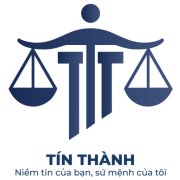Best Lawsuits & Disputes Lawyers in Vietnam
Share your needs with us, get contacted by law firms.
Free. Takes 2 min.
Or refine your search by selecting a city:
List of the best lawyers in Vietnam
About Lawsuits & Disputes Law in Vietnam
Lawsuits and disputes in Vietnam are governed by a combination of local and international legal frameworks. The country's legal system is based on civil law, which means that court decisions are primarily based on written codes and statutes rather than precedent. Vietnam's laws regarding lawsuits and disputes are designed to ensure fair and efficient resolution of conflicts, whether they pertain to commercial, civil, or administrative matters. The Vietnamese court system is composed of people's courts and the Supreme People's Court, which is the highest judicial authority. Moreover, arbitration and mediation are increasingly popular methods for dispute resolution in Vietnam, aligning with global trends towards alternative dispute resolution methods.
Why You May Need a Lawyer
There are several situations where individuals or businesses may require legal help regarding lawsuits and disputes in Vietnam:
- Commercial disputes over contracts or business agreements.
- Family legal issues, including divorce or child custody matters.
- Property disputes, including boundary issues or ownership claims.
- Employment-related disputes between employers and employees.
- Intellectual property rights violations.
- Personal injury claims or disputes arising from accidents.
- Criminal charges or lawsuits involving regulatory compliance.
In these situations, a lawyer's expertise can help navigate the complexities of Vietnamese law, improve your understanding of your rights and obligations, and assist in developing a strategy for resolution.
Local Laws Overview
Understanding the key aspects of the local laws in Vietnam related to lawsuits and disputes is crucial:
- Civil Code: Governs contractual agreements, property rights, and personal obligations.
- Commercial Law: Deals with business operations and commercial transactions.
- Civil Procedure Code: Outlines the process for carrying out civil lawsuits in the courts.
- Labor Code: Regulates employment contracts, workers' compensation, and industrial relations.
- Marriage and Family Law: Pertains to family-related legal issues including marriage, divorce, and child custody.
- Intellectual Property Law: Protects rights related to inventions, trademarks, and copyrights.
It's important to note that these laws are frequently amended to stay aligned with the socio-economic development and international commitments of Vietnam.
Frequently Asked Questions
What is the process of filing a lawsuit in Vietnam?
To file a lawsuit, you need to submit a petition to the competent People's Court. The petition should include details of the parties, a concise statement of facts, and any evidence supporting your claim. After the court accepts the petition, the proceedings will begin.
How long does it take to resolve a legal dispute in Vietnam?
The duration depends on the complexity of the case, the court's schedule, and the willingness of the parties to resolve the issue. On average, it may take anywhere from a few months to several years.
Can disputes be resolved outside of court in Vietnam?
Yes, disputes can be resolved through alternative dispute resolution methods such as arbitration and mediation, which are often faster and less formal than court proceedings.
What are the costs involved in legal disputes in Vietnam?
Costs can include court fees, attorney fees, and other litigation expenses. These can vary based on the complexity, duration, and legal representation needed.
Where should I file my lawsuit?
Typically, you must file the lawsuit at the court where the defendant resides or where the legal issue occurred.
Can foreign nationals file lawsuits in Vietnam?
Yes, foreign nationals and entities can file lawsuits in Vietnam, provided they have the necessary legal standing and requirements specific to their case.
Is there a statute of limitations for filing lawsuits in Vietnam?
Yes, different types of legal claims have different statutes of limitations, usually ranging from one to ten years, depending on the nature of the dispute.
Do I need a lawyer to represent me in court?
While it's not mandatory to have a lawyer, having one can greatly assist in navigating legal procedures and advocating on your behalf.
What language is used in Vietnamese courts?
Vietnamese is the official language used in the courts. If you are not fluent, it is advisable to have a legal representative or translator.
What should I prepare before meeting a lawyer for a consultation?
Bring all relevant documents related to your case, including contracts, correspondence, witness statements, and any previous legal filings. Be prepared to discuss your situation and what you hope to achieve.
Additional Resources
Consider contacting the following resources for more information or assistance with legal disputes in Vietnam:
- Vietnam Bar Federation
- Local Legal Aid Centers
- Ho Chi Minh City Bar Association
- Hanoi Bar Association
- Vietnam International Arbitration Center (VIAC)
- Governmental websites such as the Ministry of Justice of Vietnam for legal updates and resources
Next Steps
If you need legal assistance in lawsuits and disputes, consider taking the following steps:
- Determine the nature of your legal issue and identify the relevant laws and regulations.
- Gather all pertinent documents and evidence related to your case.
- Consult with a qualified legal professional who specializes in the relevant area of law.
- Discuss your case in detail, including your objectives and any potential obstacles.
- Explore alternative dispute resolution options if they may be more suitable.
- Follow the advice of your legal counsel on proceeding with your lawsuit or dispute resolution.
- Remain informed about your legal rights and responsibilities throughout the process.
Remember, obtaining professional legal advice is crucial to protecting your interests and achieving the best possible outcome in your case.
Lawzana helps you find the best lawyers and law firms in Vietnam through a curated and pre-screened list of qualified legal professionals. Our platform offers rankings and detailed profiles of attorneys and law firms, allowing you to compare based on practice areas, including Lawsuits & Disputes, experience, and client feedback.
Each profile includes a description of the firm's areas of practice, client reviews, team members and partners, year of establishment, spoken languages, office locations, contact information, social media presence, and any published articles or resources. Most firms on our platform speak English and are experienced in both local and international legal matters.
Get a quote from top-rated law firms in Vietnam — quickly, securely, and without unnecessary hassle.
Disclaimer:
The information provided on this page is for general informational purposes only and does not constitute legal advice. While we strive to ensure the accuracy and relevance of the content, legal information may change over time, and interpretations of the law can vary. You should always consult with a qualified legal professional for advice specific to your situation.
We disclaim all liability for actions taken or not taken based on the content of this page. If you believe any information is incorrect or outdated, please contact us, and we will review and update it where appropriate.
Browse lawsuits & disputes law firms by service in Vietnam
Vietnam Attorneys in related practice areas.
Browse lawsuits & disputes law firms by city in Vietnam
Refine your search by selecting a city.
















